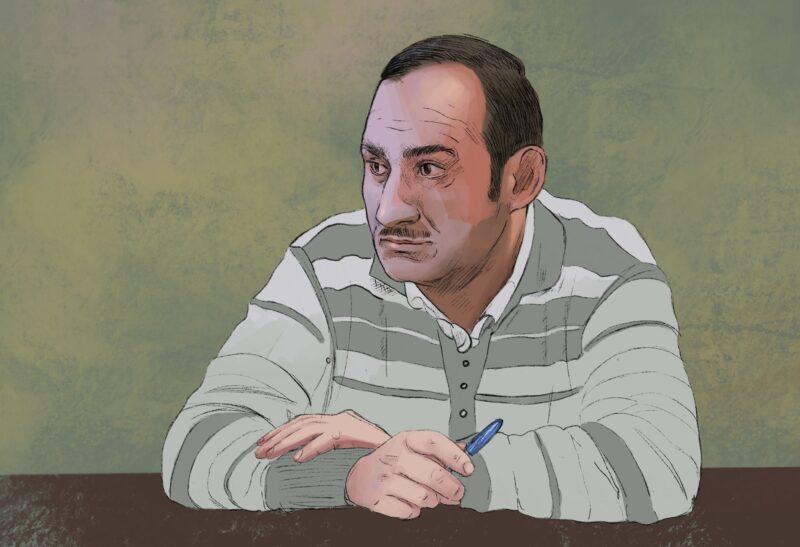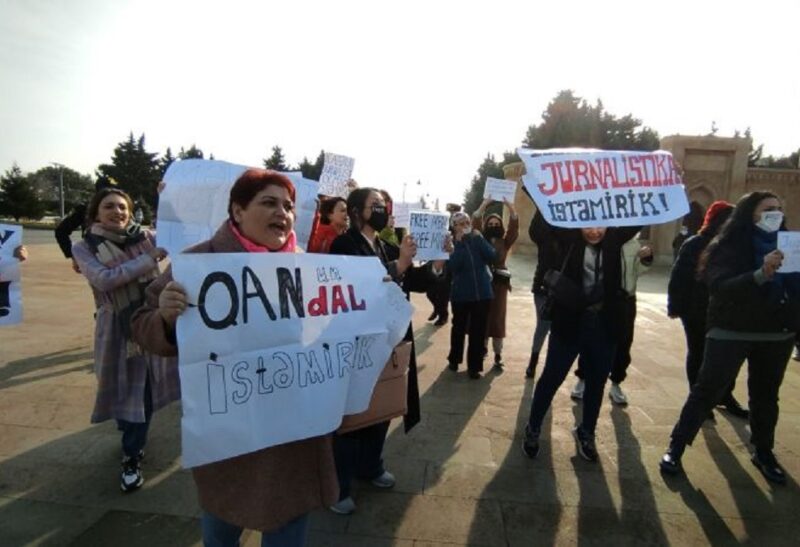

As Azerbaijani government continues coming up with ways to censor media and internet content, yet another law is under way, contact.az
reported
February 1.
The Parliament’s Human Rights Committee is considering a “psychological information security” law, the committee’s head Rabiyat Aslanova said, adding the law will cover print and online media as well as general web space. The new law will fight radicalism and other negative elements, she said, but didn’t clarify how exactly this law’s mechanisms will work.
Azerbaijani media expert and journalist Ulviyya Asadzade said she, just like the rest of Azerbaijani citizens, haven’t seen the bill yet, but “if we consider Azerbaijani government’s negative experience with freedom of speech, I’m very worried that this law will be targeted at further curbing the media.”
The problem with such bills, she said, is that they just get passed in the parliament without public discussion, and the text of such bills becomes public only after they are passed. “I call on the parliament to put the bills online before voting on them, so that public can join the discussion,” Asadzade added.
In 2013 Azerbaijan was placed 156
th
out of 179 countries by Reporters without Borders Press Freedom Index. Freedom House Freedom on the Net 2013 report rated Azerbaijan “Partly Free” with a score of 52 (0 the best and 100 the worst).
Communications Professor at Washington University in Seattle Katy Pearce
noticed in one of her recent
articles that while the government in Azerbaijan has nearly total control over the media, “the opposition-minded Azerbaijanis have turned to the Internet to express their views.”
“As the openness of the Internet became an attractive space for activists, the Azerbaijani government seemingly took notice and began formulating a policy to control it at multiple levels,” Pearce wrote. While the simplest internet control methods include blocking domains, keywords and IP addresses, Pearce noticed that there were more complex moves as well.
“Until April 2013, online and offline content was regulated by the same set of laws, as the Internet is considered part of the mass media […] On April 30, 2013, however, the Azerbaijani parliament introduced amendments to the criminal code that would specify the Internet (including both media websites and personal social networking sites) in defamation and libel laws and on May 14 the law passed,” she reminded, adding that the first criminal online defamation case happened last fall, when a former employee of a regional bank was accused of defaming the bank, by which he was previously employed. That person was sentenced to a year of public work and 20 percent withholding of his salary for a year.
Andrei K., a freelance journalist from Tashkent, Uzbekistan, who refused to publish his last name out of concern for his security, said that Azerbaijan is not inventing anything new and is simply following the path of many Central Asian governments.
“The way this new bill is described it seems like it will be another attack on media and internet freedom in Azerbaijan. There were numerous similar attempts in Uzbekistan. Such bills don’t give the government any new tools, but they do allow them block more websites, harass more journalists and force more self-censorship,” he said.
Visiting scholar at Carnegie Endowment’s Middle East Program Bayram Balci, who focused on Turkey and Turkish foreign policy in the Middle East, Central Asia, and the Caucasus, said Azerbaijan in many ways reminded of what is happening in Turkey too.
“Internet has such an impressive power of mobilization against the governments that those governments try to control it. Of course there are some abuses in the utilization of internet for example to propagate very negative and reactionary propaganda like radical Islamism, or combat in Syria in the case of Azerbaijan, but we have the feeling that the motivations of the governments and legislators is more to protect the government than to protect the population against negative influences,” he said.
Azerbaijani officials have used threats to security excuses many times. For example national Security Minister Eldar Mahmudov announced in March 2013 that facebook possessed threat to national security in terms of promoting terrorism.
Andrei K. reminded that just last year Kazakhstan used similar excuses that Rabiyat Aslanova cited, to block over 350 websites, including livejournal.
“Governments in Central Asia have used the threat of terrorism, security and war in Syria as excuses to crack down on freedom of speech. Azerbaijan has been a member of the violators club for quite a while, so why not try the same,” he said.
Aside from psychological information security the parliament is also considering a bill to limit internet access for children, APA news agency reported in February 17.
If the psychological information security was indeed passed, it would be targeting internet freedom, in particular, freedom of expression on social networks, Jasur Sumerenli, Director of the Military Research Journalism Center Doktrina, said.
“Specifically after the Arab Spring the Azeri government has taken a number of steps targeted at limiting internet freedom, a number of bloggers are currently imprisoned specifically because they have criticized the government or have been popular activists.”
Andrei K. said that “Azerbaijanis might wonder why such steps are being taken now. Nothing is happening out of thin air, there should be some context to this.”
After the presidential elections last fall the government has started a war on independently minded people and wanted to limit their activities. Such a law would legalize these limitations, Sumerenli said. He added that it wouldn’t be easy to pass a bill like the one about psychological information security in any democratic country, but “in authoritarian countries like Azerbaijan or Russia they want to pass it easily.”
Such a bill could be just another step to limit freedoms, but yet it’s more dangerous, because it attempts at using security threats as a reason, Andrei K. said, adding that “Uzbekistan has censored, harassed and imprisoned way too many people under similar circumstances.”



